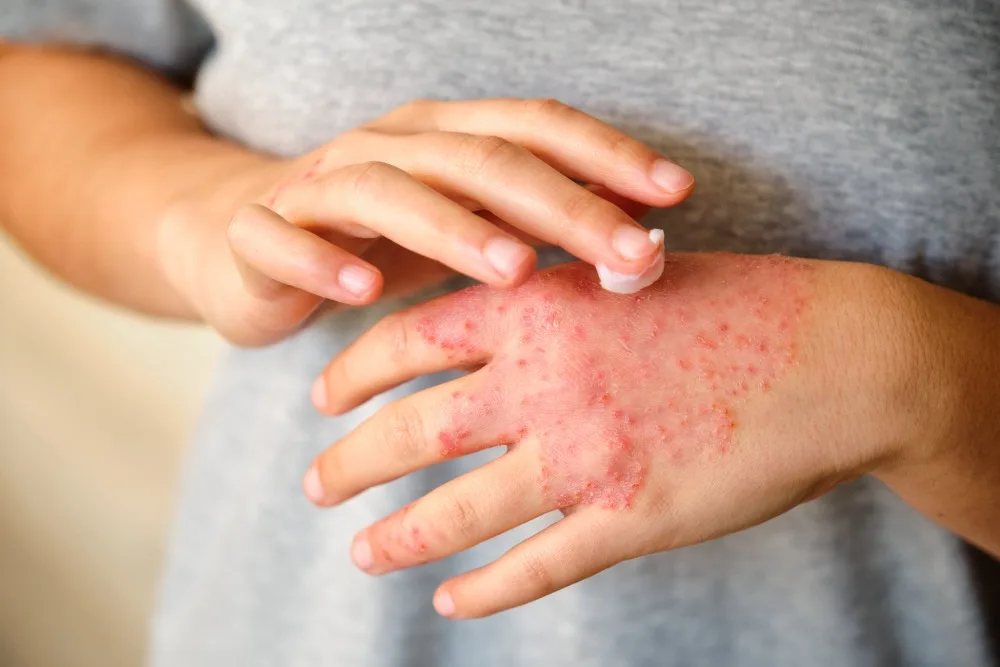Eczema, also known as atopic dermatitis, is a common skin condition that affects many infants in their first year of life. It is characterized by dry, itchy, and inflamed skin, often leading to discomfort and increased sensitivity to allergens. Recent findings suggest that natural skin lipids, particularly protein-bound ceramides, play a crucial role in the onset of eczema, providing new insights into early detection and prevention strategies.
The Connection Between Skin Lipids and Eczema
The skin acts as a protective barrier against external irritants and allergens, and its health is largely dependent on lipid content. Among these lipids, protein-bound ceramides are essential for maintaining moisture and preventing excessive dryness. A deficiency in these lipids weakens the skin barrier, making it more prone to inflammation and irritation, which are key factors in the development of eczema.
Early Indicators of Eczema Development
Research has shown that infants who develop eczema often have lower levels of protein-bound ceramides in their skin from an early age. By analyzing the lipid composition of a baby’s skin within the first few weeks of life, it may be possible to predict the likelihood of eczema development. This breakthrough opens the door for early intervention and preventive skincare routines to strengthen the skin barrier before symptoms appear.
Potential for Preventive Skincare Solutions
With a deeper understanding of the role of skin lipids in eczema, there is growing interest in developing targeted skincare solutions. Moisturizers and barrier creams enriched with ceramides and other essential lipids could help replenish the skin’s natural defenses, reducing the risk of eczema flare-ups. Parents of high-risk infants may benefit from using specially formulated skincare products designed to maintain optimal skin hydration and lipid balance.
Future Directions in Eczema Prevention
While current eczema treatments focus on managing symptoms, the identification of lipid deficiencies as a contributing factor offers a new preventive approach. Ongoing research aims to develop creams and treatments that boost protein-bound ceramide levels in infants, potentially reducing the incidence of eczema. The ability to detect lipid imbalances early could revolutionize eczema prevention, providing relief to millions of children worldwide.
Conclusion
Understanding the role of natural skin lipids in eczema development marks a significant advancement in dermatology. By focusing on strengthening the skin barrier through lipid-based interventions, it may be possible to reduce the prevalence of eczema in infants. These insights pave the way for innovative skincare solutions that support long-term skin health from infancy onwards.




+ There are no comments
Add yours